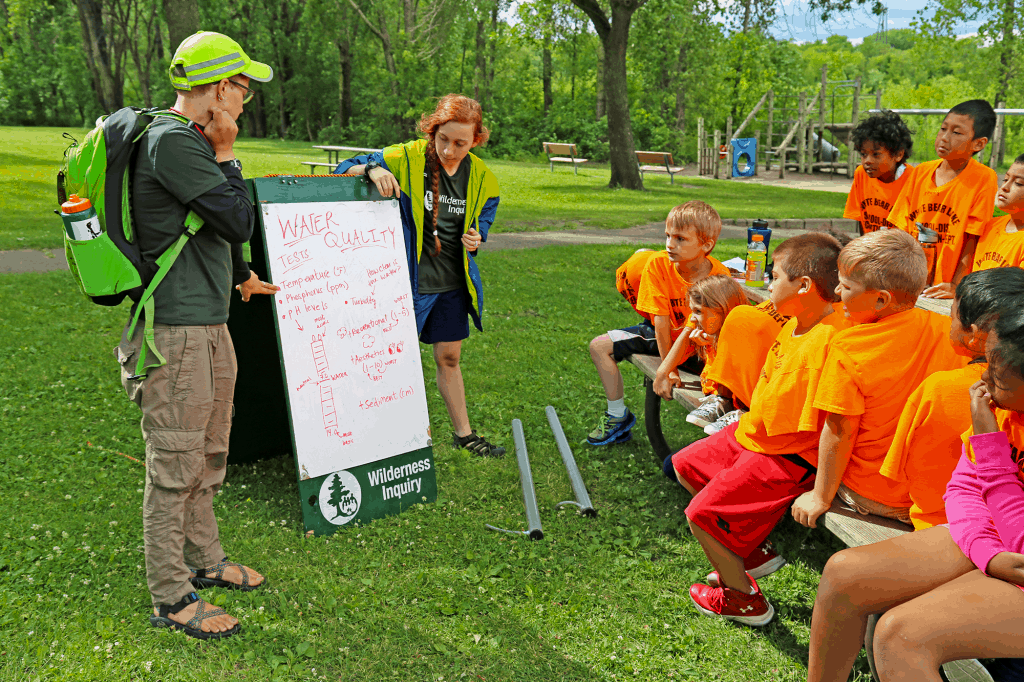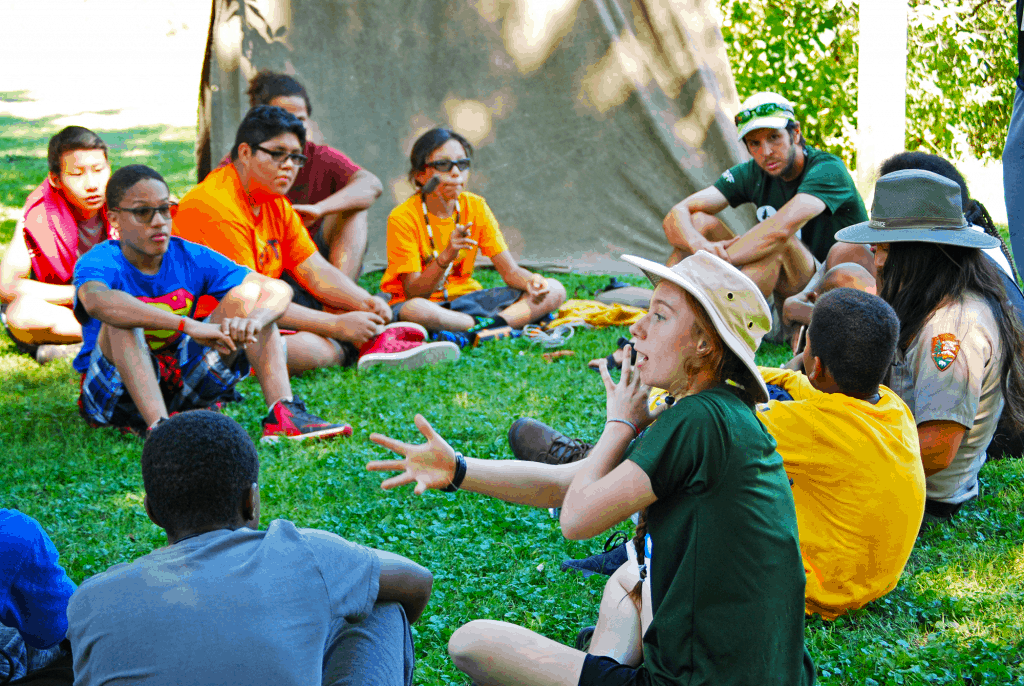Minneapolis Public Schools student, Megan Thimmesch, completed a summer water quality internship with Wilderness Inquiry through a partnership with STEP-UP Achieve and Mississippi Watershed Management Organization. Before she left for her senior year of high school, we sat down and talked with Megan about her and her summer with WI.
Q: Where do you go to school now?
A: I go to Washburn High School and Normandale Community College.
Q: What is the most interesting thing about yourself?
A: The fact that I am a fully functional teenager with a job, savings and plans for college, but I have two hearing aids and have had hearing loss since I was born. The fact that I can speak like this right now is a real testament to my parents. I would often goof up words like humility and humidity, but they took the time to teach me the differences.
Q: So what did you do during your WI internship?
A: I helped redesign the water quality curriculum. It was designed before, but I added things and hopefully made it better. Fingers crossed on that. When I wasn’t working on water quality, I helped out in WI’s warehouse, in the office and on a couple of cool day trips in between.
Q: Did you know anything about water quality before?
A: During my freshman year of high school my biology teacher, Mr. Piccott, taught us a unit on water quality that was actually designed with Wilderness Inquiry. Mr. Piccott and WI worked to design the unit that I took in school!

Q: What do you feel like you changed about the water quality curriculum?
A: Hopefully I made the procedures a bit less dry for the kids who are in summer school or credit recovery learning about water quality.
Q: So how did you make water quality less dry? (Haha.)
A: I added more water quality kits which include: dissolved oxygen tests, acidity tests, fish cards procedures, fish group dividers and thermometers.
I also designed a few water quality themes. One theme was tying the impacts of water quality into aquaculture-fish farming. Participants have to think about how water quality affects our food sources even if it’s just a hypothetical situation of running a fish farm. We want the students to ask how water quality can impact a business and how they can improve their results/profits.
Q: What was the coolest part of your internship?
A: Designing a Medieval water quality theme/lesson was so much fun.
The idea of this theme revolves around the fact that people in Medieval times (like today) needed water to survive and how it directly impacted their food source. Through this theme, a group of students are travelers and nomads and they need to set up a town so they need to find running water. The group has to test the water to see where the best place would be to live. Is the water clean? Where’s the best fishing? Where’s the best place to swim?
Meg and I were talking about using this theme for high school students because you can take it further and plan out what kinds of businesses you can run in the town. If there are enough trees, you could you send logs down the river. If it’s all sand, you can make irrigation canals. Or if your land is fertile, you could farm it. Then the students would have to consider how the businesses affects the water quality and their resources. Can you still eat? Can you still drink your water? Do you have everything need?
Finally, we can talk about legislation. What can you do as a community to maintain the water and your food supply?

Q: Why do you think water quality is important for Minnesota?
A: We’re known as the Land of 10,000 Lakes. And just as I mentioned in the Medieval water quality theme, we need water for our water supply and for our food. It’s also really good for our businesses. A lot of Minnesota’s tourism comes from our lakes.
I think one of our biggest tourist attractions is Lake Superior and if it just got very polluted- turbid, gooey, brown and black- we would lose a lot of tourists. What I know from economics is that the best money for an area is money that comes from outside of the system. So if we lose tourism, our economy could become a bit bloated which can impact jobs, housing mortgages, etc.
Q: Who was your mentor at WI?
A: Meg. When you’re sitting with her and talking about water quality, you can feel the passion. Knowing that she is my boss and has entrusted me with revamping the water quality kits, I really wanted to do right by her. There was a certain amount of trust and that she gave me something she really loves and hoping I could improve it.
Q: Do you think this internship helped you in any way?
A: It definitely improved my efficiency just being around the WI people and being in a business that conserves their resources as much as possible. This internship gave me a lot of work experience to be ready for my next job. Hopefully, with WI next year as trail staff!

Program funding provided by Minnehaha Creek Watershed District; internship funding provided by Mississippi Watershed Management Organization. Thank you to all our partners and funders.


Leave a Reply